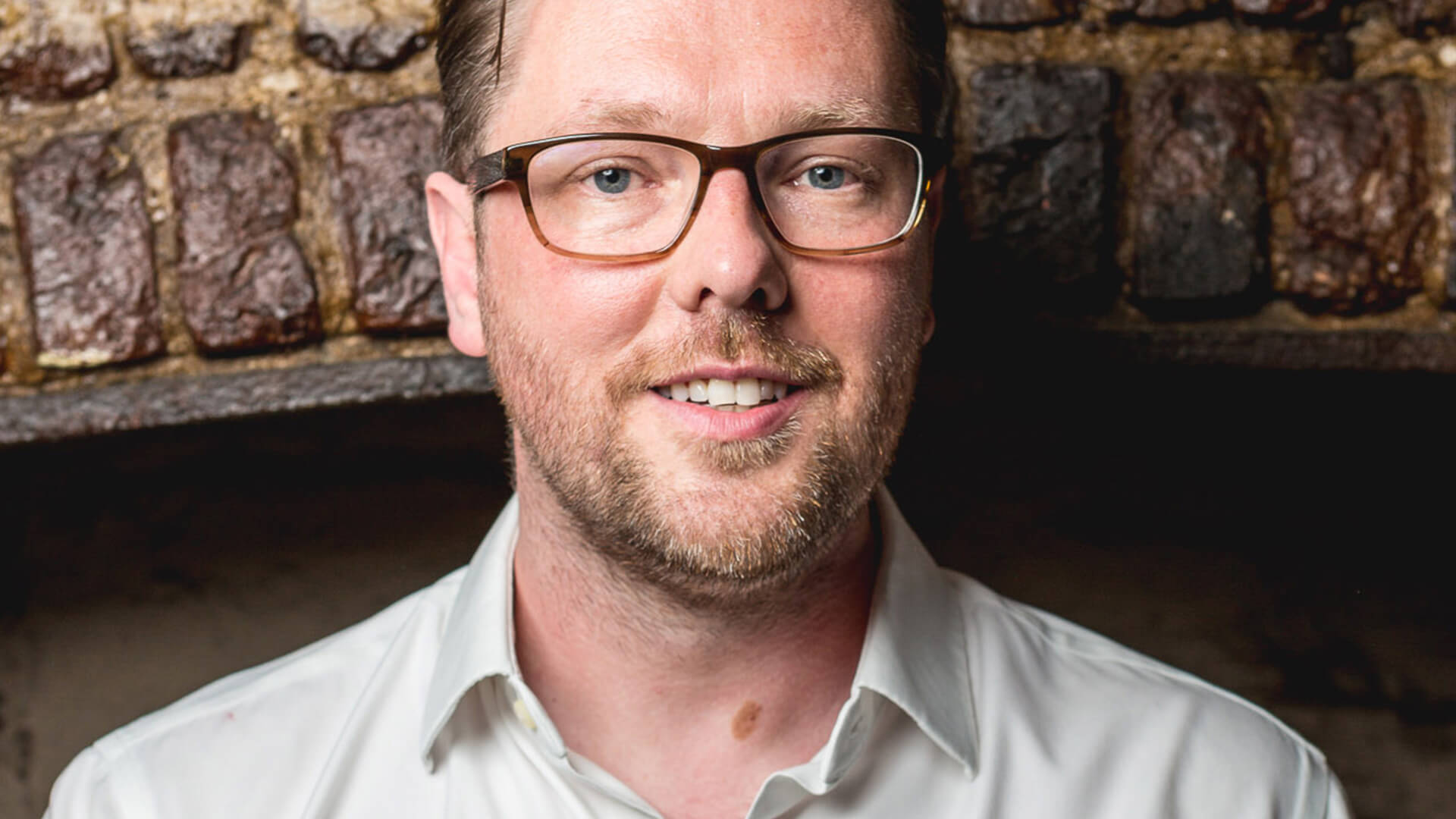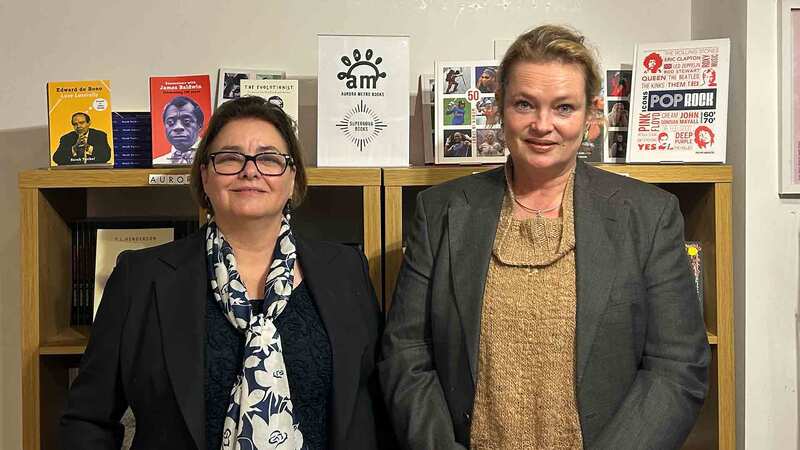Bookseller’s working-class survey, three years on
In 2019, an industry-first survey ran by The Bookseller revealed the extent to which working-class staff felt alienated in the book trade. Three years on, what has changed?

Natasha Carthew is a Working Class Writer from Cornwall. The author of nine books including Bloomsbury, Quercus and the National Trust, N...more
Representation matters. Nowhere more so than in publishing, where we have unwittingly created an environment that is hostile to a large proportion of our colleagues and authors. I know this better than anyone, as both a working-class writer and founder/artistic director of The Working-Class Writers Festival.
The best writing, and the best books, should always shine a light on the untold and the incredible, the stories and experiences that illuminate truth, injustice and inequality. But what of the demographic of those who commission and create those stories? An exclusive survey carried out by The Bookseller in 2019 revealed that four-fifths of those who work in the trade and identify as working class believe their career has been adversely affected by a culture of elitism within publishing. In a survey of 1,167 people, many respondents described feeling alien in the publishing trade, with their education and financial background meaning that they had struggled to secure internships, to live in London, embrace the networking culture and progress through the industry.
Some described struggling to afford to attend interviews—either due to transport costs or loss of earnings as a result of taking time off work to do so—while others cited derisive comments, a lack of pay transparency and a feeling of “otherness”. Frequent phrases included a feeling of being “outside looking in”, “a duck out of water” and “lack[ing] cultural shorthand”.
The most striking statistic was the 78% of working-class respondents who said their background had hindered their career—a stark figure, and one which senior publishers told The Bookseller they found surprising and disappointing, having believed that strides had been made in recent years to have a more representative workforce and output. Of middle-class participants in the survey, 52% said their background had advantageously affected their career.
Economic disadvantage is a very real thing for writers too. Class disadvantage is financial hardship compounded by a lack of social and cultural capital, as well as the lack of economic support networks. It’s a social construct, but that doesn’t mean it doesn’t exist. Barriers in publishing for both professionals and writers are everywhere, and they don’t just exist because of our socioeconomic backgrounds; they are the overarching societal prejudices that we come up against time and time again in adulthood; invisible barriers that we spend our lives tripping over and running into.
The class wall
For those working in publishing, it can mean the walls that surround the industry are too high or too wide to hammer through. Yet class is often missing from the debate about access and diversity in publishing. Those in their early careers find it hard to secure internships because of the costs of travel or rent, they often have no mates/family/industry connections in London. They have to factor in costs to embrace the network culture that exists in publishing—where they are often asked: “Who you do know?”
Prejudice or discrimination in regards to background was reported by 50% of the working-class respondents—many described it as “in jest” but said it contributed to them feeling inferior. The word “accent” also cropped up 52 times and many reported teasing or mimicking. “All well-intentioned, I’m sure, but [it] added to the feeling of being out of place,” one author said. The sense of alienation was heightened by the overwhelming feeling that publishing was unhelpfully focused in London. Across working-class respondents, 92% believed that the geographical concentration of publishing in London made it difficult to enter the industry. More than half of the respondents overall (673) were based in London, and throughout the survey responses there was a strong desire for publishing businesses to open offices outside London.
Despite this, small changes are happening in the industry, including Hachette UK’s move in 2021 to five new regional offices across the country. Speaking last month, c.e.o. David Shelley told me: “Our mission at Hachette UK is to bring books to as many readers in as many communities as possible. Opening offices around the UK has accelerated the change needed to become less London-centric, ensure we get closer to our consumers and improve our understanding of regional diversity.
Many writers that come from low socioeconomic backgrounds tell me that they have changed their accents in order to fit what they think sounds more acceptable in the world of books and publishing
“We currently have over 100 people working from our offices in Sheffield, Manchester, Bristol, Edinburgh and Newcastle. We are committed to continued change and have big growth plans: within 12 months, we hope to have over 200 people working from our national offices. Many of the roles we advertise can be based at any of our national offices and our aim is to further integrate into each city’s creative communities, and to use this to fuel our publishing and attract the very best people to our business.”
Intensifying the concerns over the London-centric nature of publishing were anxieties around networking, with many working-class respondents feeling overwhelmed by the “[received pronunciation] over canapés”. “I lacked confidence to network initially,” one London-based publisher revealed, while one author, who grew up on a council estate, said that a “lack of confidence made it harder to infiltrate the industry and network with industry people”. A junior publisher echoed this, speaking of a “lack of contacts and time, as I had to work extra jobs while first job-hunting and then as I started out. I often felt ‘guilty’ about missing networking events and other talks, etc, as I had to work a shift for my extra job.” Connected to this were frustrations with nepotism, with many claiming informal networks were used to enter the industry.
A début author said: “Publishing is a much networked nepotistic industry, where referrals are important. This affects everything from publishing opportunity to media coverage. Also, it is difficult to gain the social skills to understand the hidden rules/culture behind these middle-class networks.” They added: “Publishers and agents need to stop referrals from within their social networks and be more transparent in their hiring and recruiting practices.”
For writers, one of the greatest setbacks is the lack of funds to travel to events, workshops and courses. The working-class poet Dr Kim Moore highlights this well: “There is the constant emailing back to organisations who book me to do events, to find out if they can pay expenses and accommodation as well as a fee, otherwise I can’t attend. This just tells me that the writers who can attend events are the ones who are rich and can pay for themselves, or ones who live in London. I shouldn’t have to keep asking and keep doing this work. It’s hard to keep asking.”
Other hindrances include a lack of time or space, lack of confidence, childcare costs, not enough diversity/community imprints, not enough grassroots literary festivals, no industry mates to give you a leg up, digital exclusion (lack of tech/phone minutes/a laptop for Zoom meetings), and a lack of role models from similar backgrounds. The list goes on. As writer Marina Cantacuzino—who is “not working-class myself” explains, “my first experience of a book festival as a visitor was in 2009—suddenly the penny dropped. Almost every writer there was middle-class, had been to university, and probably most were privately educated, plus a smattering of celebrities who had written a book that year. I suddenly realised how writers don’t just appear, they are cultivated by class, and I wondered how many stories or lives we are not hearing from as a result.”
This is why in 2021 I launched The Working-Class Writers Festival: to bust open the middle-class ghetto that is the UK literary scene. The festival aimed to enhance, encourage and increase representation from the working-class writing community across the country, while connecting authors, readers, agents and editors, and its wider engagement programme provided much-needed exposure to working-class writers and brought inspiration to young people from similar backgrounds by showcasing stories reflective of and relatable to the experiences of their working-class communities. The festival had 1,161 in-person attendees, of which 40% had never attended a literary event or festival before. National media coverage of the event reached more than 700,000 people.
I am pleased to report that I have just received the brilliant news that Penguin Random House will be one of the festival’s main sponsors in 2023, and I hope other publishers will follow its lead and get in touch to ensure they too can be a part of this ground-breaking literary festival.
Many writers that come from low socioeconomic backgrounds tell me that they have changed their accents in order to fit what they think sounds more acceptable in the world of books and publishing, but in later life, this form of assimilation comes back to haunt them, in the guise of anger, guilt and regret. Several have been told to change the dialect in their fiction because of the classic editorial response, “It just doesn’t speak to me!”
Journalist and author of The Shame Game, Mary O’Hara, puts it best: “As a person who grew up in poverty in a family that needed benefits to get by, I’ve never quite felt like I truly fitted in in journalism or as an author. As a group, we’re not widely represented—but it’s about more than that. I’ve had many good experiences, been supported and championed by some fantastic people. However, the feeling of being a fish out of water, of not belonging to the culture that surrounds writers, can be visceral. We don’t need help, or even championing. We need to be at the table in the first place’.
Through the looking class
The Bookseller’s 2019 survey was money, and how the lack of it could impact confidence and opportunity. In the earnings brackets, only 5% of respondents identifying as working-class earned £50,000 or above, less than half the percentage of non-working-class respondents (13%) who earned that sum. One intern, who relied on benefits to supplement their wage, said: “Confidence is low because I can’t do the things other people do easily. Everyone in publishing speaks with money. Even their ethical drink-holders are too expensive for me.” A mid-level publisher said: “At several points I considered leaving the industry as I was concerned about the long-term effects my salary would have on my pension and my ability to own a home.”
Confidence can hit writers too. When I attended the London Book Fair (LBF) earlier this year, I was struck by how many writers told me how insecure they felt about approaching editors and agents when the conference had been billed as a place where writers can “feel at home”. LBF is not the place for authors: publishers barely have enough time to speak to each other, let alone authors who have low confidence, or the “wrong” accent or clothes.
In The Bookseller survey, the need for salary transparency frequently arose in answers and there were concerns around staff retention and the progression of working-class staff, with some reporting that they were feeling forced out of the trade. Only 46% of working-class respondents were in the top three brackets of seniority (mid-level, senior, director or higher). “When you grow up in a working-class family, particularly one where education has been scant, there’s often a lot of fear around money and authority, and a feeling of being lesser, somehow,” a London-based staffer said. “This is really hard to overcome, and sometimes it really, really affects your ability to progress in publishing.” A mid-level publisher, who did not identify as working-class, agreed with this sentiment: “I have seen colleagues from a working-class background dismissed and replaced by those from upper-middle-class backgrounds, without the post being advertised, presumably on the basis of being a ‘better fit’ for the company.”
Moving forwards, the question that yielded the most responses in the survey was the final one: “Do you think more could be done to help people from working-class backgrounds become writers or work in the publishing industry? If so, give suggestions.” The answers form a blistering 62-page dossier for change. There is anger over internships (the word “intern” or “internship” was mentioned almost 120 times); the lack of (or poor) pay associated with such roles; the nepotism which often secures opportunity for people of certain backgrounds. Stronger salaries for all entry-level roles was commonly mentioned, as was the need for outreach, engagement and mentoring outside the publishing bubble.
A healthier industry will exist if we continue to be open-minded and question every decision that is made, removing obstacles brick by brick to ensure that diversity and inclusion is at the heart of everything we do—until, finally, the class barrier is torn down for good.
Comment Damian Barr
I am a writer, reader, broadcaster and Salon creator—I sit across a lot of different bits of our world of books. Each has its own appeals and challenges for me personally. And I have seen change in each of those areas and remain part of it by telling my own stories and platforming other working-class voices. But change is still not happening fast enough and is not equally distributed between different working-class communities (cos guess what, we are not a uniform mass) or across the nations of the UK.
This issue of The Bookseller reflects the change and will hopefully speed it up. Too often, I am still the only person in the room who didn’t go to a private school: this doesn’t make me feel special, like I’ve somehow made it. It makes me feel lonely and angry. Too often, publishing still feels too posh to push itself. I don’t doubt the intentions or fail to appreciate the efforts of individual professionals to make and hold space, but the solution is not individual action: a systemic problem needs system-wide change.
I wish The Working Class Writers Festival had existed when I was starting out. All festivals, and events, should feature voices from across classes and welcome working-class folk—I hold myself responsible here too. Being a writer means taking beautiful, terrifying risks and that’s much easier to do when you have a home that is secure, a family you can call upon for help, or a network of equally privileged peers. As another perma-winter of so-called “austerity” descends, combined with an entirely avoidable cost-of-living crisis, it becomes harder for all artists to find the time and energy to create. It becomes even harder for those who must choose between heating and eating. Publishing is diversifying because it makes commercial, moral and cultural sense: the success of 404Ink, Inkandescent and Dialogue Books, and thriving indie bookshops like Afrori and Category is Books are positive proof. Our stories matter.

















